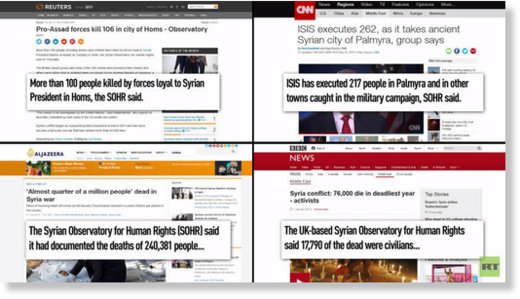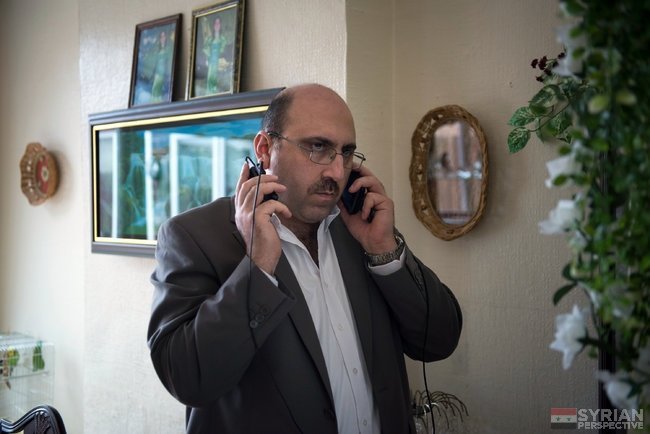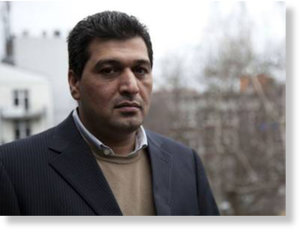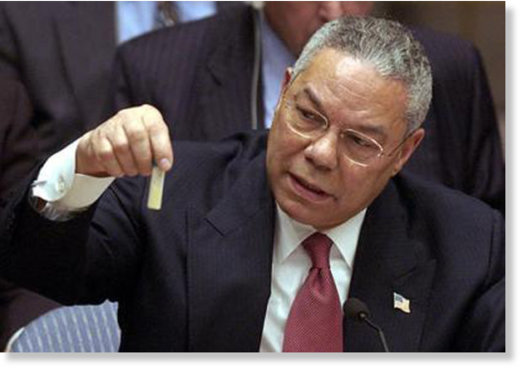Beirut (AFP) - Syrian regime forces advanced in the battleground city of Aleppo Friday, backed by a Russian air campaign that a monitor said has killed more than 3,800 civilians in the past year.
Syria regime advances in Aleppo, MSF decries 'bloodbath'
https://au.news.yahoo.com/world/a/32775377/halt-aleppo-bloodbath-msf-tells-damascus-moscow/#page1
AFP on October 1, 2016 -
The Doctors Without Borders (MSF) charity accused Syria's government and its ally Moscow of provoking a "bloodbath" in the city, saying the eastern rebel-held portion had become "a giant kill box".
Syria's army was advancing on two Aleppo fronts, as talks between key players Washington and Moscow -- which back opposing sides in the war -- appeared close to collapse.
Damascus's bid to recapture all of the divided northern city prompted the UN to warn of "a humanitarian catastrophe".
UN chief Ban Ki-moon announced he is setting up an internal board of inquiry to investigate the September 19 bombing of an aid convoy in Syria that killed 18 people.
The UN panel will report to Ban, who will "decide what further steps to take", a UN statement said.
US officials have said Russian planes attacked the 31-truck convoy bringing aid to a town west of Aleppo. Moscow has denied the accusation.
Just over a week after Syria's army announced an operation to recapture all Aleppo, it was advancing both in northern and central Aleppo Friday,
according to the Syrian Observatory for Human Rights monitor and state media.
In the north, it recaptured the Handarat former Palestinian refugee camp, as well as the old Kindi hospital, said
Observatory director Rami Abdel Rahman.
Rebels had held the hospital since 2013, and capturing it allows government forces to threaten the opposition-held Heluk and Haydariyeh neighborhoods.
The Observatory said at least 15 people, including two children, were killed in strikes on Heluk and other eastern districts Friday.
- Humanitarian catastrophe -
In central Aleppo, meanwhile, fierce clashes shook the Suleiman al-Halabi neighbourhood, divided by the frontline separating the rebel-held east and regime-held west.
The army is seeking to capture the opposition-held sector of the district and advance to the main water supply station for the government-controlled part of Aleppo which is in the neighbourhood.
State television said 15 civilians had been killed and 40 wounded by rocket fire into the government-held part of Suleiman al-Halabi and neighbouring Midan district.
Since the army operation began, Damascus and Moscow have pounded east Aleppo with air strikes, barrel bomb attacks and artillery fire, killing at least 216 people, including more than 40 children,
according to the Observatory.
The assault has levelled apartment blocks and put hospitals out of service, creating a humanitarian catastrophe in opposition areas besieged for most of the past two months.
It has been some of the worst violence since the March 2011 beginning of Syria's conflict, which has killed more than 300,000 people and displaced over half the population.
Outside Damascus, meanwhile, air raids on several rebel-held towns in the Eastern Ghouta region killed at least 17 people including eight children,
the Observatory said.
On Thursday, US Secretary of State John Kerry warned Washington was "on the verge" of suspending talks with Russia on Syria because of the Aleppo assault.
Moscow, a key ally of President Bashar al-Assad, began a military campaign to bolster his forces in September 2015 that has so far killed more than 9,300 people,
the Britain-based Observatory says.
- 'Giant kill box' -
That figure includes 3,804 civilians and more than 5,500 jihadists and rebels, it says, adding that at least 20,000 civilians have been wounded.
The Observatory says it determines what planes carried out raids according to their type, location, flight patterns and the munitions involved.
"We do not consider as reliable the information... coming from this organisation, which is based in the United Kingdom," Kremlin spokesman Dmitry Peskov told reporters.
Kerry's Russian counterpart Sergei Lavrov on Friday accused Washington of protecting a jihadist group in its effort to overthrow Assad's regime.
Lavrov told the BBC that Washington had vowed, under a failed truce deal, to "take as a priority an obligation to separate the opposition" from the former Al-Qaeda affiliate Fateh al-Sham Front, once known as Al-Nusra Front, but that it had not done so.
"We have more and more reasons to believe that from the very beginning the plan was to spare Nusra and to keep it just in case for Plan B or stage two when it would be time to change the regime," Lavrov said.
Moscow said Thursday it would continue its campaign, despite Washington's threat and international concern about Aleppo.
"Bombs are raining from Syria-led coalition planes and the whole of east Aleppo has become a giant kill box," MSF director of operations Xisco Villalonga said in a statement on Friday.
"The Syrian government must stop the indiscriminate bombing, and Russia as an indispensable political and military ally of Syria has the responsibility to exert the pressure to stop this," he said.
The activities of the controversial London-based Syrian Observatory for Human Rights have been denounced by Russia’s Foreign Ministry with spokesman Aleksandr Lukashevich casting doubts on SOHR’s reliability.
Russia questions credibility of Syrian Observatory for Human Rights
https://www.rt.com/news/syrian-observatory-human-rights-reliability-223/
( 25 Feb, 2012 ) "As far as we know, this organization employs only two people (its head and secretary-translator). It is headed by Rami Abdulrahman, who has no training either in journalism or law or even a complete secondary education," Lukashevich said.
The SOHR is one of the most widely-quoted sources of Syrian casualty figures and Lukashevich pointed out that many information agencies, primary Western ones, often refer to SOHR data in their reports on Syria.
"The fact that representatives of the 'observatory' have been avoiding contact with our diplomats speaks for itself," the spokesman added. "We think that these facts allow one to judge how trustworthy the information provided by this structure is."
In fact there are two sites each claiming to be an official observatory and providing different data. The original site is indeed controlled by Rami Abdulrahman, while the man behind the duplicate is Mousab Azzawi, who had worked as a translator for the original SOHR and launched his own SOHR site in December after he was fired.
Both sites report slightly different figures, none of which can be independently confirmed, leaving media outlets wondering how reliable their sources are.
Azzawi’s SOHR is apparently opposed to the rule of the Syrian President Bashar Al-Assad. The allies of Azzawi’s site earlier confirmed to RT that reporting the deaths of the Syrian government loyalists was not in their interest.
War of Words: Russian Foreign Ministry calls out MSM reports on hospital strike in Syria
The false reports spread by the “Syrian Observatory for Human Rights” [based in U.K.] exposed by Russian Foreign Ministry
https://syrianfreepress.wordpress.com/2015/10/23/rus-expose-sohr-fakes/
(Oct. 23, 2015) The Russian Foreign Ministry has disputed Western media reports accusing Russia of hitting a field hospital in northwestern Syria and killing 13 people.
The reports cited “sources” provided by the London-based Syrian Observatory for Human Rights (SOHR).
Foreign Ministry spokesperson, Maria Zakharova, stressed that such reports show tremendous bias towards Russia’s military efforts in Syria.
“There are so-called mass media reports which allege that Russian aircraft bombed a field hospital in the Idlib Governorate in northwestern Syria and reportedly killed 13 people. I cannot say that these reports are written by journalists but their ingenuity delights,” Zakharova, told reporters.
She questioned the credentials of the Syrian Observatory for Human Rights, pointing out that it is based in Britain and has no direct access to the ground in Syria. “This information appears with reference to the Syrian Observatory for Human Rights based in London. As we all understand, it is very ‘convenient’ to cover and observe what is happening in Syria without leaving London and without the ability to collect information in the field,” Zakharova added.
She said that Russia’s role in the Syrian conflict is aimed “primarily” at “protecting civilians,” while “terrorist groups” continue to receive “reinforcements of people” and “equipment from abroad,” which is a “very dangerous tendency.”
“These facts raise a question as to whether parties involved in the Syrian conflict are really interested in a peaceful settlement and how this goal is reconciled with financial and technical support for anti-government armed groups, including those who directly cooperate with terrorists,” she said during a briefing.
MSM attacks on Russia
Since joining the fight against Islamic State, Russia’s efforts in Syria have been repeatedly attacked by the Western mainstream media, which have published many unconfirmed reports employing scaremongering tactics.
AFP, a French media outlet, was responsible for publishing a piece titled 13 Dead as Russia strike hits Syria field hospital: monitor.
The source in the story was identified as the UK-based Syrian Observatory for Human Rights, which is run by one man – Rami Abdulrahman.
Just recently, Abdulrahman told RT that the last time he had been in Syria was 15 years ago and that all the information for his reports is taken from “some of the Observatory activists” who he knows “through common friends.”
In the past, Rahman has said he relies on sources on the ground, who are among the US funded Syrian rebels.
Shortly after the report appeared, a video emerged showcasing the exact moment of the alleged Russian hospital strike. The video was uploaded by activists known as White Helmets – a rebel group which has already been caught faking evidence of civilian deaths supposedly caused by Russian strikes.
Meanwhile, Russia said it struck a meeting place of terrorist leaders in northwestern Syria. The Russian Defense Ministry specified that it had used a KAB-500 bomb.
“A Sukhoi Su-34 bomber attacked the installation with a guided KAB-500 air bomb, which wiped the target out with everything that was inside,” MoD’s spokesman, Major General Igor Konashenkov said on Wednesday.
Despite the power of the explosion, a cameraman in the posted video runs through only a small cloud of dust.
Experts have questioned the authenticity of the video posted by the rebels, stating that it is physically impossible to film such a powerful explosion from a few meters away and survive.
“It didn’t look like an aerial bomb dropped from an airplane. It appeared to come from an angle and the angle of the explosion appeared to be more like artillery,” a former policy analyst for the US Defense Department, Michael Maloof, told RT.
This kind of unreliable reporting is just one of the latest examples. Earlier, the Turkish military released a statement saying that it had downed an unidentified drone in Turkish airspace after issuing the aircraft 3 warnings.
It was not long before reports suggested it was Russian and being used to collect information. However, a Russian drone manufacturer denied the reports, calling the photos of the allegedly downed drone part of a poorly-staged “informational provocation.”
Other baseless accusations quickly followed, including British newspapers speculating that Royal Air Force Tornado jets operating in Iraq were to be equipped with air-to-air missiles and that their pilots had been cleared to fire on “Vladimir Putin’s jets” in the case of an imminent threat.
Moscow issued a formal request to the British Foreign Office, demanding an explanation. The answer came in a news blog, when the UK’s MoD’s spokesperson wrote that “There is no truth in this story.”
Another CNN story suggested that several Russian cruise missiles targeting Islamic State positions in Syria had landed in Iran. Citing two unnamed “top US officials,” the American broadcaster reported that four Russian missiles had crashed somewhere in Iran after being launched from vessels in the Caspian Sea.
The Russian Defense Ministry refuted the report, stating that missiles had hit their intended targets. “Unlike CNN, we don’t distribute information citing anonymous sources, but show the very missile launches and the way they hit their targets almost in real time,” Russian Defense Ministry spokesman Igor Konashenkov said.
Russia: Foreign Ministry tackles the Syrian Observatory of Human Rights
https://www.youtube.com/watch?v=2UKuy3pGFtc (3:17 min.)
Published on Oct 22, 2015
Russian Foreign Ministry Spokesperson, Maria Zakharova, challenged the veracity of the reports of the Syrian Observatory for Human Rights (SOHR), which is based in London, during a press conference in Moscow on Thursday. Zakharova accused the reports as exhibiting bias against Russia's airstrikes on targets within Syria.
SOT, Maria Zakharova, Russian Foreign Ministry Spokesperson (Russian): "There is also information that terrorist groups continue to receive reinforcements of people and equipment from abroad. This is a very dangerous tendency. These facts raise a question whether parties involved in Syrian conflict are interested in a peaceful settlement of the Syrian conflict and how this goal is correlated to financial and technical support of anti-government armed groups including those who directly cooperate with terrorists. It is not a secret and it's an obvious fact that without preventing external assistance, blocking channels of infiltration of militants, illegal trade of Syrian hydrocarbons and cultural valuables the task of eliminating the outbreak of international terrorism in Syria is complicated."
SOT, Maria Zakharova, Russian Foreign Ministry Spokesperson (Russian): "The most effective weapon in such conditions for the international community and each state is combating terrorism in all its forms and manifestations within the framework of active and partner international cooperation based on international law without any double standards."
SOT, Maria Zakharova, Russian Foreign Ministry Spokesperson (Russian): "There are so-called mass media reports which allege that Russian aircrafts bombed a field hospital in the Idlib Governorate in north-western Syria and killed reportedly 13 people. I cannot say that these reports are written by journalists but ingenuity of these reports delights. I would like to stress once again that this information appears with reference to Syrian Observatory for Human Rights based in London. As we all understand, it is very 'convenient' to cover and observe what is happening in Syria without leaving London and without the possibility to collect information in the field."
Media speculation rife over Russia’s operation in Syria
https://www.youtube.com/watch?v=6zcPi9BJH5k (3:09 min.)
Published on Oct 21, 2015
From day one of Russia's air campaign in Syria the media has accused Moscow of not just bombing terrorist targets, and of causing civilian casualities. RT's Gayane Chichakyan takes a closer look.





